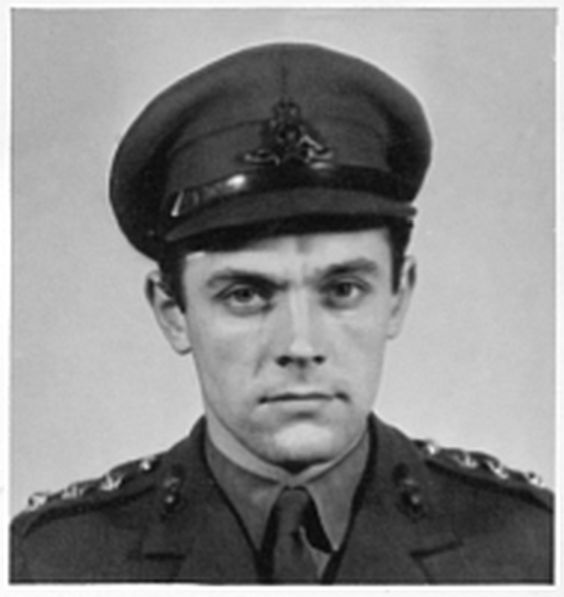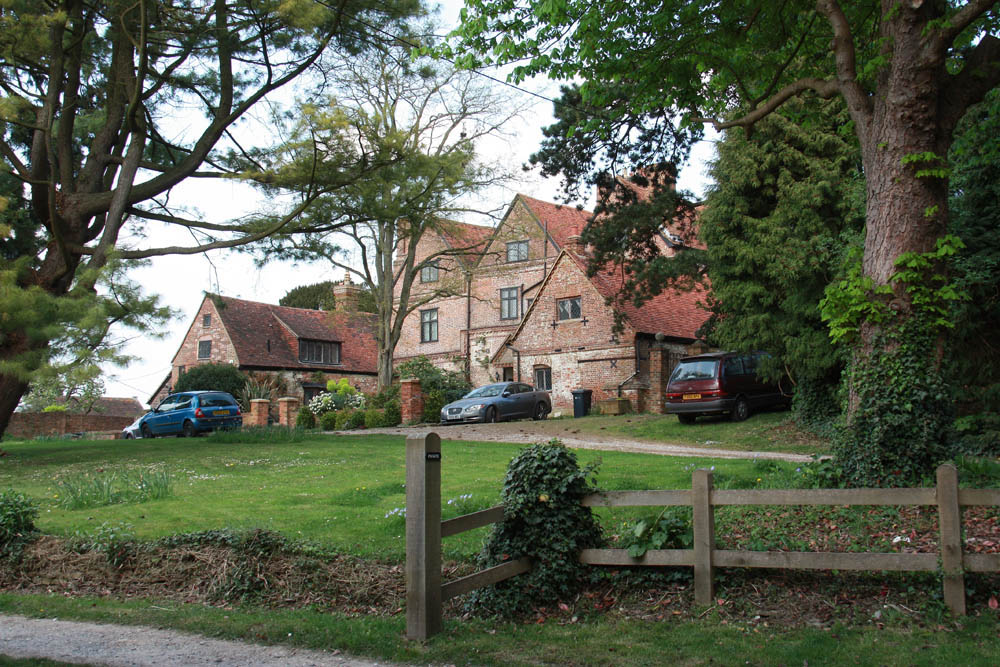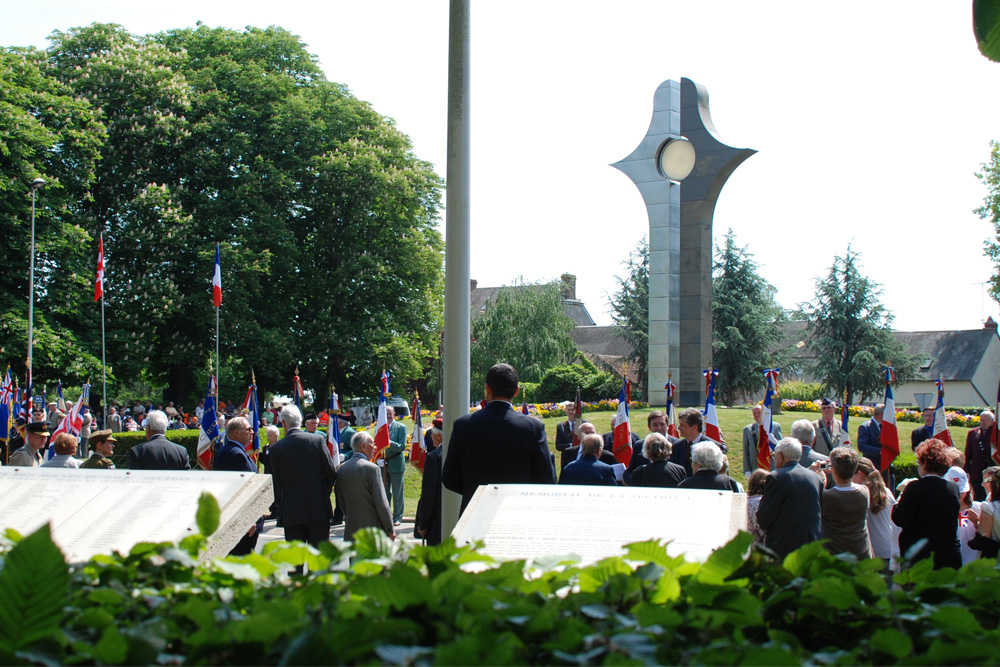Peulevé, Henri Leonard Thomas "Harry"
- Date of birth:
- January 29th, 1916 (Hastings, United Kingdom)
- Date of death:
- March 20th, 1963 (Sevilla, Spain)
- Buried on:
- Grave Major H.L.T. Peuleve Old Catholic Cemetery Seville
- Service number:
- 178174
- Nationality:
- British
Biography
Do you have more information about this person? Inform us!
- Period:
- Second World War (1939-1945)
- Rank:
- Major
- Unit:
- F Section, Special Operations Executive (SOE), British Government
- Awarded on:
- August 30th, 1945
This officer was parachuted into France on the 30th July 1942 as W/T operator. He was dropped at some distance from the reception committee, and, his parachute failing to open properly, he broke his leg on landing. He managed to get to hospital, and having recovered sufficiently to be able to walk, he escaped into Spain where he spent several months in gaol and returned to England in May 1943.
He volunteered to return to France and was landed by Lysander on the 17th September 1943 as organiser and W/T operator in the Corrèze department. With great zeal and energy he set to work organising sabotage teams and maquis groups in the Corrèze and the neighbouring department of Dordogne. By his tact and diplomacy he established excellent relations with the local French resistance leaders, and by the beginning of 1944 had several thousand men under his control. He organised the reception of arms and explosives on a large scale, and through his efforts the resistance groups in this area became some of the most strongly armed and best organised in France.
Peulevé organised and led a number of sabotage operations against enemy communications, and took part in several guerilla engagements notably at Montignac early in March 1944, when one of his groups was attacked by 400 Germans and Miliciens. This action, during which Peulevé showed outstanding leadership and gallantry, resulted in 51 of the enemy killed.
Towards the end of March 1944, Peulevé was arrested by the Gestapo. The direction of his circuit was immediately taken over by his second in command. Peulevé had organised it on such an excellent basis that his successor was able to develop a powerful movement which achieved remarkable results on and after D-Day.
Another British officer who worked with Peulevé in the field has commented on the affection and devotion which Peulevé inspired in all his men and the ascendancy which the quality of his personality had won him. "He never asked anyone to do something which he was not prepared to do himself, and on several occasions I saw him take part in arms transport at a time when they were very dangerous, in order to keep the morale of his men up. In the same way he continued to work in Brive until the end, although he knew the risks he was running, because he thought it essential for the efficiency for the circuit. At the time of his arrest he knew my name and my whereabouts as well as those of several of our friends. Yet he did not give any of us away. As an organiser he had the merit, which was very great at the time, of being the first to work on an F.F.I. basis in the Corrèze, helping all groups in the area as along as they were eficient. This policy, which brought him criticisms from all sides, later enabled his successor to obtain some excellent results in the Corrèze and Dordogne. Lastly I would like to say that Peulevé is one of the finest officers I have met, combining as he did shrewdness, loyalty, courgage and complete devotion to his work".
During his twelve months imprisonment, at first in France and later at Buchenwald concentration camp, Peulevé was brutally ill-treated. He made several attempts to escape, and on one occasion broke out of the Fresnes prison. He was shot in the thigh and recaptured. No medical attention was given to him and he had to remove the bullet himself with a spoon. He finaly escaped on the 11th April 1945 from a working party which was being forced to build defences on the River Elbe. He captured two S.S. men and took them into the American lines.
It is strongly recommended that he be appointed a Companion in the Distinguished Service Orde."
Signed Major-General Colin Gubbins
- Period:
- Second World War (1939-1945)
- Rank:
- Major
- Unit:
- F Section, Special Operations Executive (SOE), British Government
- Period:
- Second World War (1939-1945)
- Rank:
- Major
- Unit:
- F Section, Special Operations Executive (SOE), British Government
"Volunteering for a mission in occupied territory this British officer was parachuted into France near Nîmes on 30 July 1942. Due to his parachute not opening completely, he was severely injured and survived only through the dutiful care of his organizer and the help of members of the local resistance movements.
Recovering as best he could, he returned to England in May 1943 and volunteered for a new mission. He was dropped in the Corrèze on 17 September 1943 and, establishing close contact with leaders of the Resistance movements in this area, he immediately set about how to provide them with arms.
Apart from many organizing many parachute drops, he created assault teams which never ceased disrupting enemy communications. In particular, on 10 March 1944, during the battle of Montignac, he personally led his Resistance group against 400 attacking Germans, causing them heavy losses including 51 dead.
Arrested some days alter by the Gestapo and cruelly tortured, he refused to speak and was finally deported to Germany.
Thanks to his courage, his organizaton could continue its work. He was one of the key architects of the Resistance movements in the Corrèze."
With palm
- Period:
- Second World War (1939-1945)
- Rank:
- Major
- Unit:
- F Section, Special Operations Executive (SOE), British Government
- Period:
- Second World War (1939-1945)
Sources
- Photo 1: Wikimedia Commons
- - NIGEL PERRIN, Spirit Of Resistance, Pen & Sword, Barnsley, 2008.
- Gravestone
- SOE Peuleve, Henri Leonard Thomas Andre (Harry)
- https://www.thegazette.co.uk/London/issue/37244/supplement/4372/data.pdf
- Recommendation for Award for Peuleve, Henry Leonard Thomas Rank: Temporary... | The National Archives









